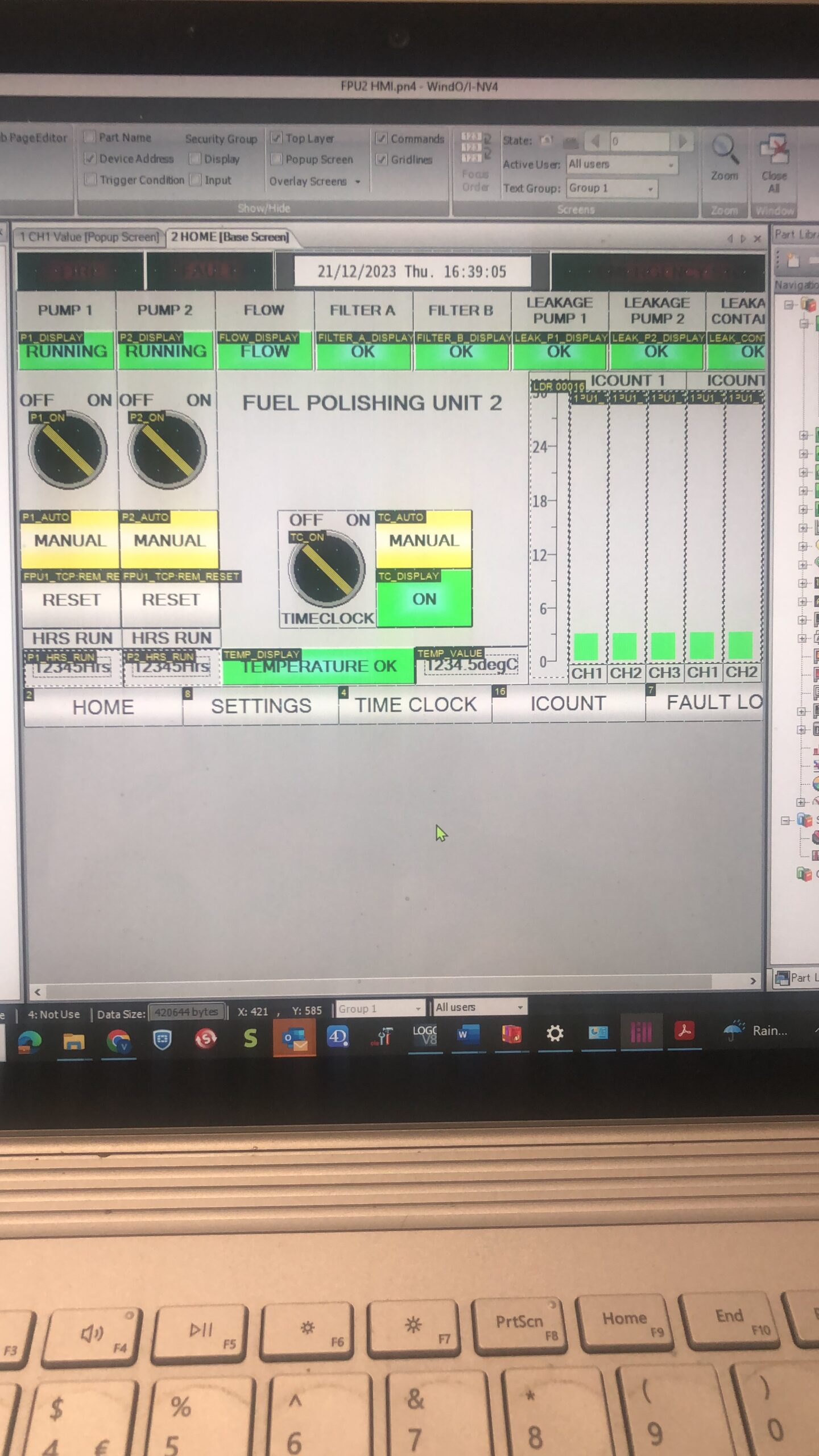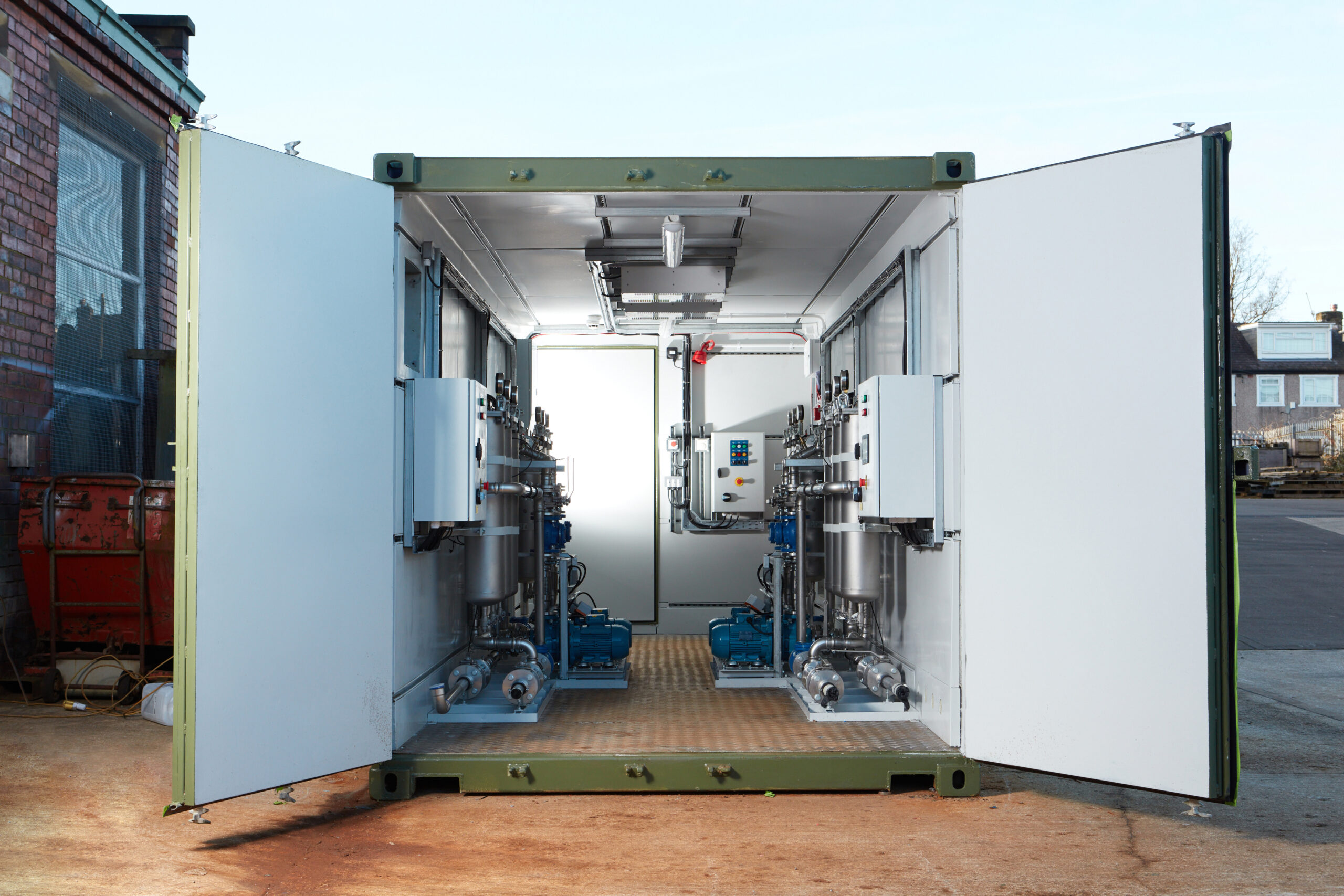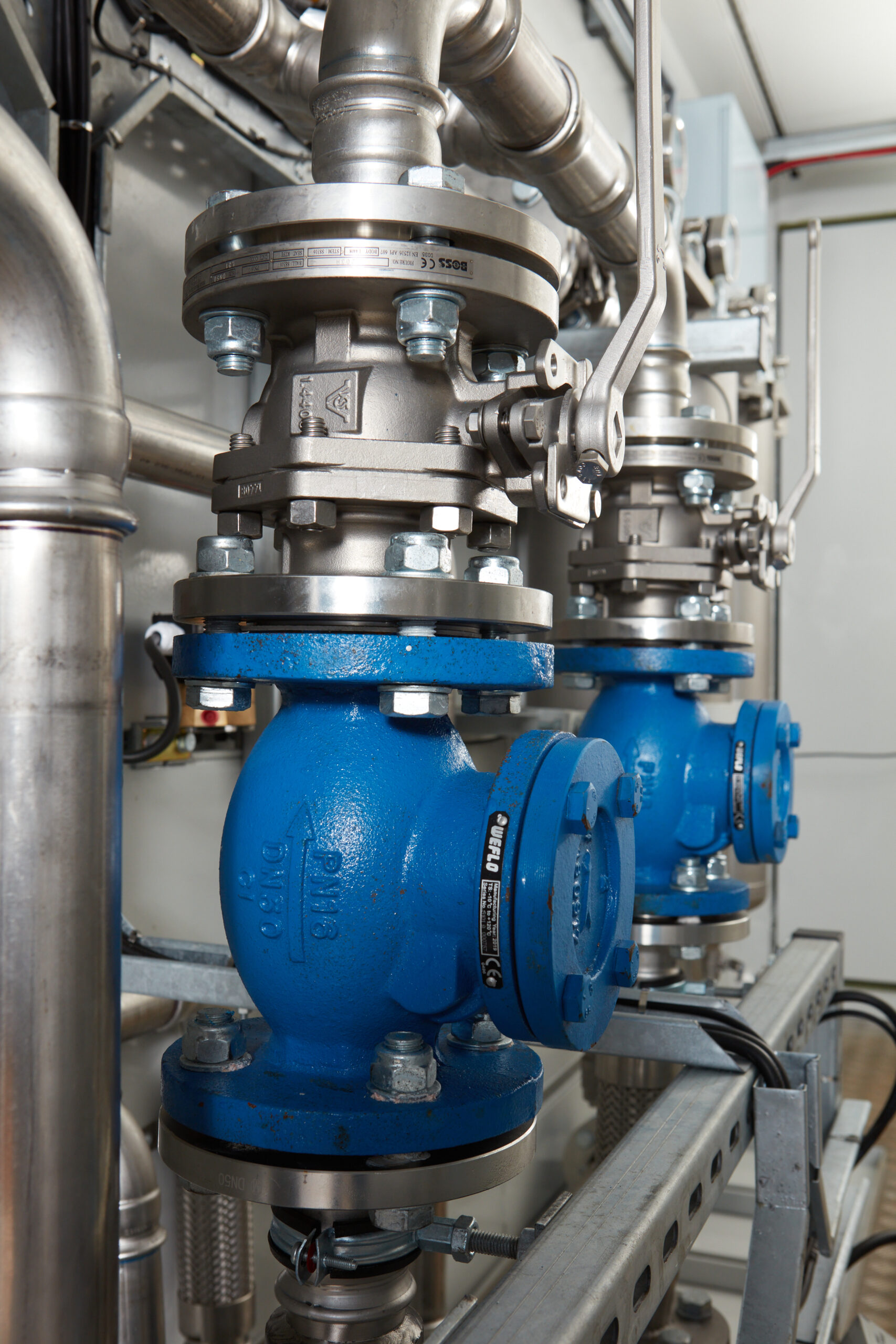Case Study : Standalone Fuel Polishing : Completed Jan 2024
Introduction
FSS were approached by a client with a requirement for a fuel polishing system but due to the location, high usage of fuel and potential variation in the quality of fuel supplied to them no current fuel polishing system available in the market would be suitable.
Fuel polishing is generally done in large, bulk tanks with static fuel (sits in the tanks for long durations) where relatively fine filtration is used and the fuel in the tank pumped through the polishing system potentially hundreds of times before it is used. A typical system would have 2 in line filters.
For this application the client would typically use 40-50,000lts of fuel a day, with no ability to re-circulate the fuel it had to be cleaned in one pass. Due to the sites extremely remote and harsh location fuel supplied to the site varies in quality but the generators that the fuel feeds must not breakdown. The generators are not back up but provide all the heat and power at the location.
Taking three years to design, FSS have built an utterly bespoke system with 4 separate fuel polishing rigs, all in line offering first magnetic, then particulate and then finally water filtration. Whereas a ‘normal’ fuel polishing system would have two filters this system has 25 in line filters. Each of the 4 individual rigs has had redundancy built in to ensure the fuel will always be able to flow. Realtime monitoring of the fuel condition is also built into the systems, normally taking a week to get fuel results back from the lab, this system real time monitors the fuels condition and constantly measures dirt at 4, 6 and 14 microns to offer an ISO code for the fuel at each stage of filtration.
The Build
Stage 1: A fully containerised solution was decided on, making the systems easy to transport to site (as were going by sea) and the container itself would offer ideal protection against the harshest of environments.
Stage 2: Fit out begins. Again, due to the location a fully insulated solution was needed to protect both the personnel, equipment and to not allow the fuel to get too cold.
Insulation fully installed and steel plating welded over it and painted with a specialist fuel, fire and chemical resistant paint. Ready to get installation of the polishing system started.
Stage 3: Dry fitting of all the polishing filters, pumps and equipment prior to fully making up all joints. These are 6 of the 25 filters we will be using. Pumps now dry fitted.
In a first for us, clear sight glasses fitted to the polishing system so the fuel can be checked as it enters and exists the systems.
All the pipework fitted is 316 grade stainless steel Mapress. All joints are crimped wherever possible as these crimped joints are much more robust and vastly less likely to leak than mechanical joints.
Stage 4: The electrical install commences. Duty/ standby double knock fire alarm systems being installed that will isolate and power down the entire system in the event of a fire. Duty/standby heaters and ventilation fans are also installed.
Real time laser counters measuring the fuel before and after filtration along with differential pressure switched fitted to each filter housing to indicate when the filters need changing.
Control panel with small touchscreen (HMI – Human Machine Interface) to indicate machine status at polishing system and transfer unit.
All control panels will report into a master control panel, in the generator control room some 750m away with large touchscreen (HMI) and full BMS compatibility.
Specialised magnetic filter to catch larger & metallic particles before they go into the pumps and become smashed up and split into thousands of smaller particles. Also shows red actuated valve to close in the event of a fire or alarm.
Specifically adapted progressive cavity pumps to minimise disturbance of the fuel when pumping to help catch larger particles before they and broken up into smaller ones.
Stage 5: Installation complete and waiting for collection.
Fuel Storage Solutions Limited is a private family-owned and managed business. Co-Directors Jonathan and Katharine Barnett launched FSS in 2002. Today we are one of the UK’s leading and most well-respected fuel system solutions providers, employing 40 people nationwide.
We service a wide range of market sectors including leading Facilities Management Companies.
| OFTEC registered Fuel Specialists | Recipient of THE KING’S AWARD FOR ENTERPRISE |
If we can help you with any service related to the use and storage of fuel call our specialist CATS team on 01274 813003.
Your Fuel Specialists



 01274 813 003
01274 813 003 sales@fuelstoragesolutions.co.uk
sales@fuelstoragesolutions.co.uk Back to Blog
Back to Blog 














 01274 813 003
01274 813 003 sales@fuelstoragesolutions.co.uk
sales@fuelstoragesolutions.co.uk